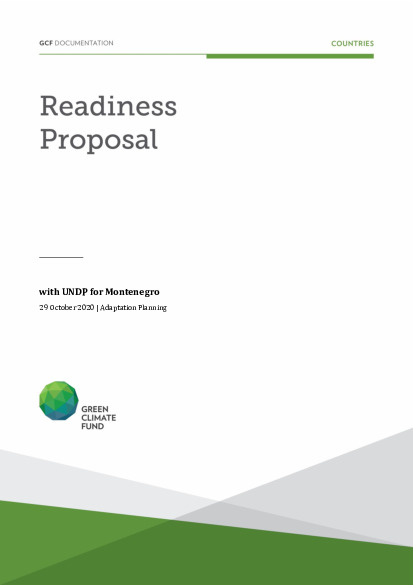Enhancing Montenegro’s capacity to integrate climate change risks into planning

Enhancing Montenegro’s capacity to integrate climate change risks into planning
Recognizing that climate change poses significant risks to its long-term development, the Government of Montenegro (GoM) has taken several foundational steps to develop a long-term adaptation planning process that is anchored in the National Climate Change Strategy by 2030 and Montenegro’s National Communication.
While these foundational steps provide a starting point, the GoM has identified several gaps that inhibit effective adaptation planning. These gaps include 1. An underperforming coordination framework, 2. A lack of institutional capacity, 3. insufficient information, and 4. A lack of finance to fund adaptation investments, and 5. a private sector that has a low capacity to understand and respond to climate vulnerabilities and risks.
The overarching objective of this project is to improve Montenegro’s institutional capacity for long term adaptation planning. To achieve this, the proposal is focused on three interconnected outcomes:
- Adaptation planning governance, institutional coordination, and technical capacity strengthened;
- An enhanced evidence base for designing gender-sensitive adaptation solutions;
- An adaptation finance mobilization strategy developed;
With the GCF support, Montenegro will strengthen its institutional coordination framework, expanding the technical capacities of those responsible and involved in adaptation planning, enhance the evidence base required for effective decision making, and define a resource mobilization strategy.
This proposal is the first stage (Phase I) of what is intended be a two-staged approach for utilizing the support of the GCF for adaptation planning. The second stage (Phase II) will build on Phase I to, amongst other things, integrate other sectors into the adaptation planning process, further integrate the private sector and more fully develop financing strategies and tracking of adaptation finance.
The main beneficiaries of the project are the Ministry of Sustainable Development and Tourism, the Institute of Hydrometeorology and Seismology of Montenegro. In addition, the Ministry of Agriculture and Rural Development, the Ministry of Health, the Ministry of Economy, Ministry of Finance and the Ministry of Interior and their stakeholders will benefit from this project.